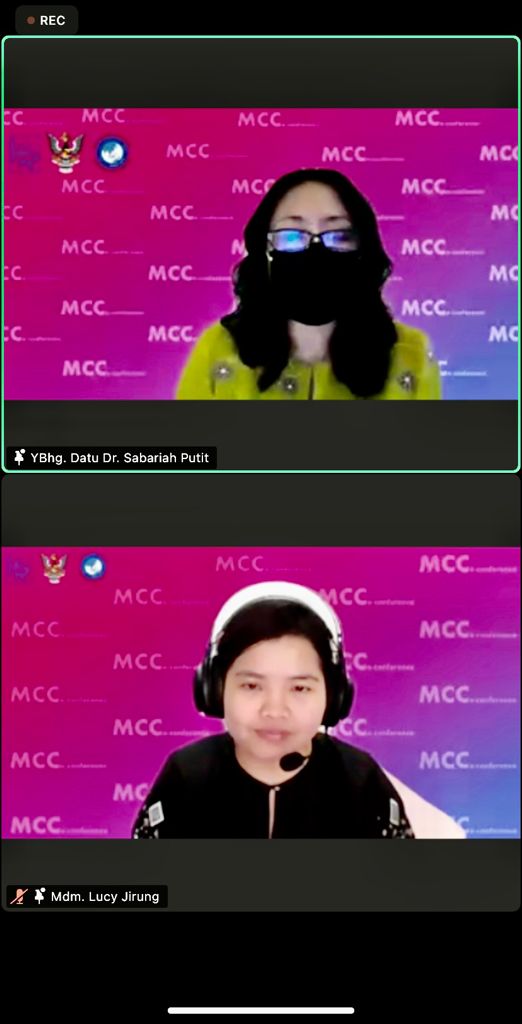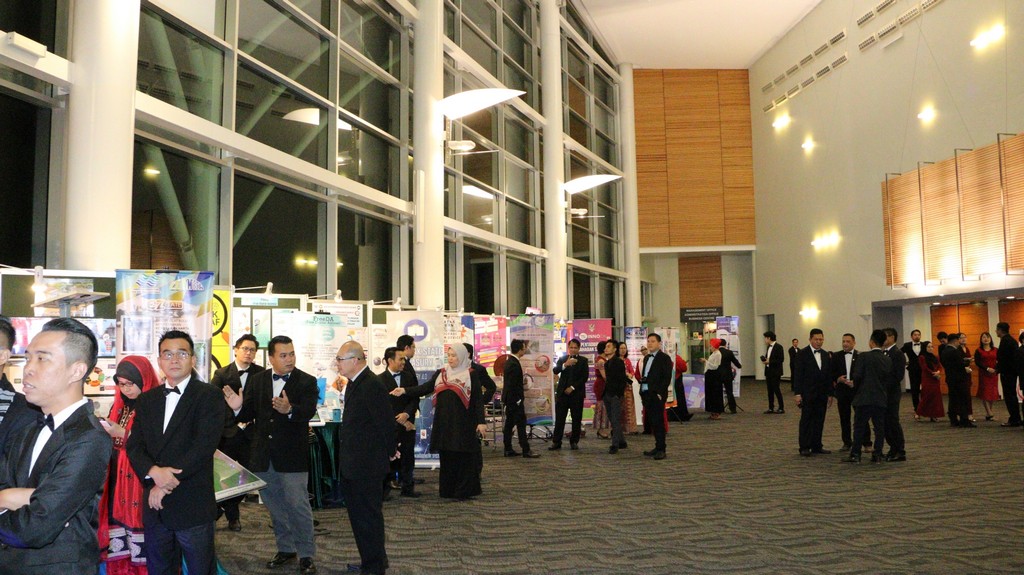Beyond the Sarawak Civil Service (SCS) Action Plan 2010-2020 and as Sarawak learns to adapt in a post-COVID-19 environment, SCS should strive to translate its six shared values – Integrity, Kind and Caring, Professionalism, Sense of Urgency and Ownership, Team Spirit and Result-oriented – from a desired culture into a high-performance culture.
“(High-performance culture is) where individuals give their best, and workforce are working in synergy and engaged with the organisation’s values.
“(It) also promotes idea generation and leadership that empowers employees to take ownership in their everyday performance of their roles,” said Deputy State Secretary (Performance and Service Delivery Transformation) YBhg Datu Dr Sabariah Putit.

She added that every level of the SCS workforce needs to practise and cherish the values of a high-performance culture to achieve excellence in service delivery, and maintain such productive culture towards reaching the civil service’s vision of becoming a world-class civil service.
Her deliberation on the matter was in line with the theme of the very first Managing Culture Change E-Conference: ‘High-Performance Culture Drives Excellent Delivery Service.’
The one-day virtual conference was organised by the State Human Resource Unit under the Chief Minister’s Department on 2 September 2021, targeting participants from various designations of SCS, including heads of departments, human resource (HR) champions, administrators, and department/agency officers.
The objectives of the conference were:
- To gather all HR practitioners to share experiences and current information on Managing Culture Change trends that they have in their organisations;
- To introduce High-Performance Culture to all civil servants of SCS;
- To expose new ideas and latest trends of managing culture change to the civil servants of SCS;
- To institutionalise Culture Change in SCS; and
- To adopt and adapt to the digital culture in agencies throughout SCS.
“There’s no one-size-fits-all approach when it comes to building a workplace culture.
“However, understanding the common characteristics of a high-performance culture can help guide organisation’s leadership and employees in their communication, and more to bring out the best in our employees,” Datu Dr Sabariah said in her keynote speech ‘The Journey of Managing Culture Change in Sarawak Civil Service.’
She cited findings of global trends by HR content specialist Tarika Arun, who noted common characteristics that define a high-performance culture. They are:
- Shared mission and goals;
- Employee empowerment;
- Continuous learning and development;
- Open communication and collaboration;
- Agility and security; and
- Effective performance management.
The need to inculcate aspects of high-performance culture comes as public services around the world, including Australia, Canada, Ireland, Singapore, the United Kingdom and the United States, are investing in their organisational transformation to enhance their services to the people, more so in the ongoing COVID-19 pandemic.
“In a world of constant change, especially in this digital era, most organisations embarked on a workforce transformation, as they are pressured in the way they work or operate.
“The public sector is no exception. Transformations are significant in building a resilient and agile government in times of change to ensure effective service delivery.
“We will continue to prepare the civil servants for a greater transformation by building a strong foundation through the enculturation of values, the right mindset, and attitude,” Datu Dr Sabariah stated, adding that such efforts ensure that organisational values are embedded into the culture of SCS and lessen issues concerning resistance to change.
Managing Culture Change Initiatives in the Sarawak Civil Service
Resistance to change among civil servants, noted Datu Dr Sabariah, is one of several ongoing issues and challenges SCS is confronting as it manages culture change within its massive overall organisation.
Others include challenges in measuring the impact of culture change due to its subjective matter, and the lack of planned initiatives to respond to rapid changes due to global transformation and events, such as the impact resulting from COVID-19.

To overcome them, SCS undertakes approaches and implements programmes at two levels: individual and organisational.
At the individual level, programme modules are created based on the Cognitive, Emotive and Behavioural Intervention Model, which aims to improve culture in the civil service through a gradual process.
“Initiatives are prearranged into three levels of change processes, where each level has different approaches and ways of delivery, adopted from the Kurt Lewin Change Theory,” she elaborated; the theory in question involves three steps: unfreezing, changing and refreezing.
At the organisational level, SCS utilises its own Culture Rating Survey (SCS CRS) as a measurement tool to ascertain the present culture within the civil service and an employee’s acceptance level to the shared values.
Implemented in 2014, the survey is reviewed annually to maintain its high reliability and reflection of the actual culture in the organisation.
Datu Dr Sabariah revealed that since 2015, eight modules and many kits have been developed as part of SCS’s Managing Culture Change initiatives.
Furthermore, 252 series of programmes have been successfully organised at various government agencies and departments, benefiting 14,275 officers.
Overall effectiveness of programmes under the Managing Culture Change initiatives thus far – which is based on findings obtained from participants – is at 97 percent, and this has helped boost the yearly SCS Culture Rating Score to 83 percent.
In addition, there has been an increase in the number of respondents to these initiatives, from 1,855 respondents in 2015 to 13,488 respondents in 2020.
This, the deputy state secretary believed, indicates the positive impact of enculturation of culture change and internalisation of the civil service’s shared values.
“We will continuously monitor the progress of all (Managing Culture Change) initiatives and intervention within SCS, to ensure future (SCS Culture Rating Survey and Score) are improved and elevated to a better rating,” she said.
Through numerous initiatives that have been or will be implemented, Datu Dr Sabariah was confident of SCS’s assertive and proactive efforts in meeting its targets and outcomes in terms of managing culture change, especially during and after COVID-19.
“Today’s pandemic is a demonstration of the need for SCS to be agile and response quickly in order to provide the necessary service whether it’s in the urban or rural areas as COVID-19 pandemic does not discriminate localities,” she noted, concluding that constant collaboration between State and Federal agencies and the effective deployment of resources will ensure excellent service delivery to the people.




